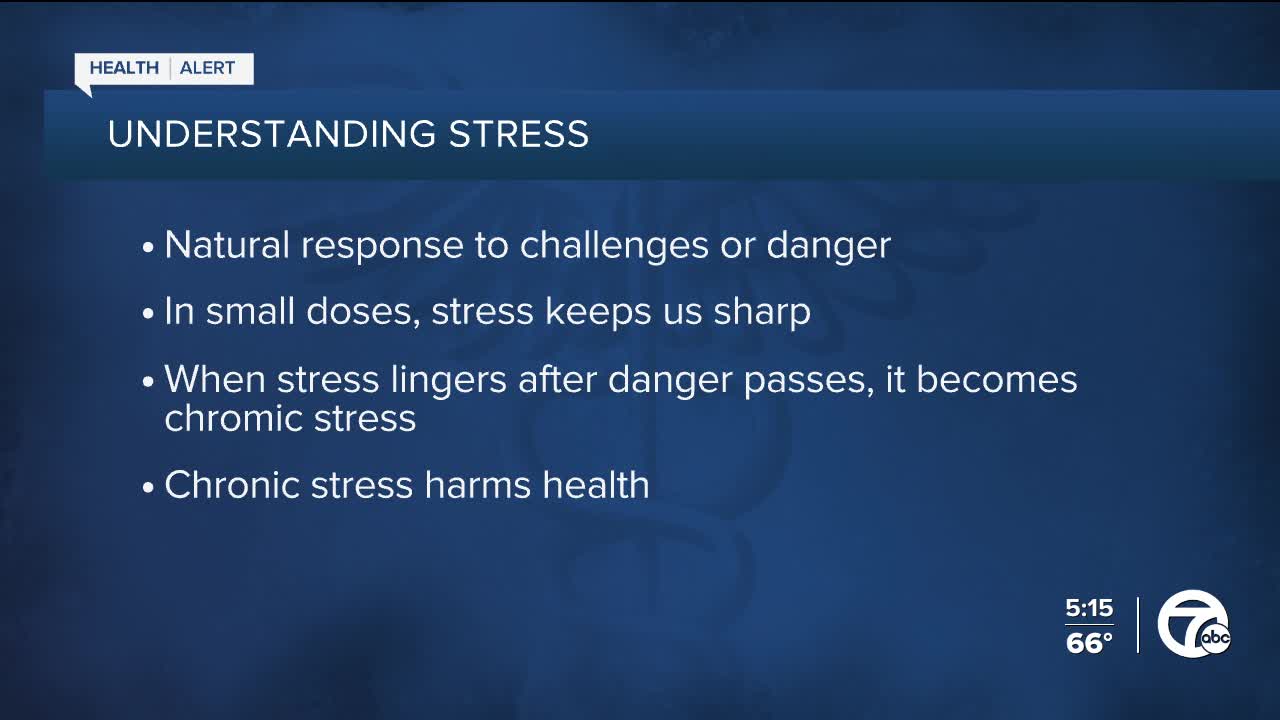(WXYZ) — In today’s Health Alert, a growing number of studies are revealing a surprising connection between stress and dementia. Experts say long-term stress may play a much bigger role in cognitive decline than previously thought.
Stress is your body’s natural response to challenges or danger. Back in caveman days, stress helped us survive. The rule was quite simple: “Eat lunch today - don’t be lunch today”. Usually, once the danger passes, the stress fades. So in small doses, it can actually help us stay sharp. But when stress sticks around for too long—what we call chronic stress—that’s when it can start to harm your health.
So, how is stress connected to dementia? There are a few important links. One is a hormone called cortisol, which your body releases when you’re stressed. High levels of cortisol over time can affect the hippocampus, the part of the brain that helps with memory and learning.
Stress also affects your immune system and can trigger inflammation. When inflammation becomes chronic, especially in the brain, it can damage brain cells and disrupt communication. Also, animal studies have shown that stress can weaken the connections between brain cells and lead to a buildup of harmful proteins, both of which are linked to dementia.
When you’re stressed, it’s harder to sleep, exercise, or eat well, which just makes the stress worse. It becomes a tough cycle.
The good news is, there’s a lot we can do. First, focus on the three basics: eat a healthy diet, stay physically active, and get enough sleep. Even small changes in these areas can lower your stress levels and support your brain.
Also, make time to relax - whether that’s taking deep breaths, stretching, meditating, or doing something else you enjoy. Even a few minutes can make a big difference.
Also, don’t underestimate the power of connection. If you’re feeling stressed or alone, reach out to someone - a family member, a friend, or your doctor. Even a quick chat can lift your mood.
And if you’re noticing memory issues or caring for someone who is, talk to your doctor about ways to manage the stress that comes with it.
Stress affects the brain in many ways, and those effects build up over time. So it’s important to take time to slow down and recharge.
This Week on the Dr. Nandi Show:

Dr. Partha Nandi, MD looks at why diets fail and what kind of mindset you need to set yourself up for success. Two former food addicts who each lost 70 pounds share how they kicked sugar out of their lives for good. Research Neuroscientist Dr. Nicole Avena explains sugar addiction and the grip it has on our lives. Functional Nutrition Expert Sarah Morgan reveals how our digestive tract can affect our weight and brain. And learn what exactly is a healthy weight and mindset with RDN Mitali Kapila. Plus, how the ancient practice of yoga encourages healthy eating habits with Weight Loss Coach Bethany Perry. Tune in this Saturday, May 31st, at 5 pm, to watch “Can You Set Your Mind To Get To A Healthy Weight?”




